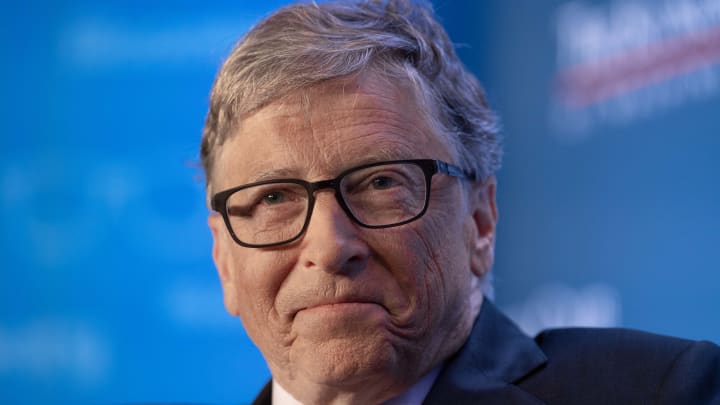Bill Gates says that the A.I. revolution means everyone will have their own white collar personal assistant

Many writers, translators, and customer service workers are worried about the rapid advancements in artificial intelligence and the threat to their jobs. But while A.I. will bring some changes to the workplace, the reality may not be as dramatic, according to Microsoft co-founder and A.I. optimist Bill Gates.
There are many jobs where these capabilities are not used much, Gates wrote in a blog post Tuesday about A.I. before adding that the ability of chatbots like OpenAIs ChatGPT to express ideas will increasingly be like having a white-collar worker available to you.
Microsoft and Google have both rolled out artificial intelligence-imbued products, including their respective chatbots Bing and Bard, and this month, both companies moved to integrate A.I. with their work apps.
Microsoft referred to its new features as a copilot, while Google said its goal is to build a new generation of digital assistants. And while A.I. in the workplace will likely get smarter, Gates said it may not ever become much more than a copilot.
Gates, who stepped down as Microsofts CEO in 2000 but continues to consult for the company, touted Microsofts copilot features and how they will enhance workplaces by helping withemail-writing and managing email inboxes.
Eventually, as A.I.s abilities and office implementations improve, everyone will have the equivalent of their own virtual personal assistant that would make them work more efficiently, Gates said, echoing the workplace vision for A.I. Microsoft and Google have advertised.
[A]dvances in A.I. will enable the creation of a personal agent. Think of it as a digital personal assistant: It will see your emails, know about the meetings you attend, read what you read, and read the things you dont want to bother with. This will both improve your work on the tasks you want to do and free you from the ones you dont want to do, he wrote.
A.I. was used to improve workplace efficiency long before ChatGPT hit the scene. For years companies have tapped A.I. for data analysis, automating repetitive processes, and updating old files and records. But for most of its practical history, A.I. has largely operated behind the scenes. With the technology being used in office apps, and Google and Microsoft both refining A.I.-assisted chatbots that can accomplish complex tasks in a matter of seconds, artificial intelligence is poised to become a much larger part of working life.
Gates wrote that because ChatGPT has now thrust A.I. into the public eye and tech titans are dueling for dominance, advancements could continue at a breakneck pace. [I]nnovations are going to come much faster than what we experienced after the microprocessor breakthrough, he wrote, adding that the shift from a pre- to post-A.I. world will be as profound as the advent of personal computers.
But while A.I. will change many things about how we work, including our efficiency and productivity, some growing pains will be hard to avoid. A recent study by University of Pennsylvania researchers found that while 80% of the U.S. labor force will see only 10% of their work tasks affected by A.I., as many as 19% of American workers will see over half of their job influenced and potentially jeopardized by A.I.
Some leaders in the field have conceded that A.I. will likely lead to job losses, even in high-paying roles, while insisting that the jobs most likely to go will be repetitive ones that are easy to automate. I do think clerical white-collar work is going to be able to be replaced by this, Arvind Krishna, chairman and CEO of IBM, told the Financial Times last month. A decade ago, Oxford University economist Carl Benedikt Frey predicted that A.I. could wipe out 47% of U.S. jobs by the early 2030s. More recently, the World Economic Forum forecasted in 2020 that A.I. would eliminate 85 million jobs worldwide by 2025.
Politicians have argued that laws to protect workers from being unemployed by A.I. and automation are needed. Some have said that a universal basic income program to keep displaced workers afloat during a transition period is necessary, while others like Sen. Bernie Sanders have proposed taxing companies that employ robots and artificial intelligence instead of humans, an idea that Gates himself floated in 2017.
2023 Fortune Media IP Limited. All Rights Reserved. Use of this site constitutes acceptance of our Terms of Use and Privacy Policy | CA Notice at Collection and Privacy Notice| Do Not Sell/Share My Personal Information| Ad Choices
FORTUNE is a trademark of Fortune Media IP Limited, registered in the U.S. and other countries. FORTUNE may receive compensation for some links to products and services on this website. Offers may be subject to change without notice.
S&P Index data is the property of Chicago Mercantile Exchange Inc. and its licensors. All rights reserved. Terms & Conditions. Powered and implemented by Interactive Data Managed Solutions.
